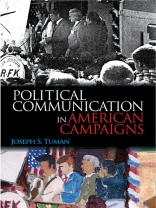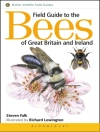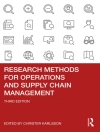In Political Communication in American Campaigns, Joseph S. Tuman provides a comprehensive, clear, and accessible treatment of American campaign rhetoric and argues that modern elections are not really about contests between candidates or political parties; rather, they are more about the competing messages each player in the political process must present to persuade and reach voters.. This book′s triangulated approach to political communication includes (1) all forms of campaign speech and oratory; (2) the rhetorical dimensions of campaign debates; and (3) candidate/campaign interaction with mass media.
Key Features
- Allows readers to deconstruct and understand how and why speeches affect voters: Offers methods for understanding how political speeches are constructed and targeted, as well as how to apply these methodologies to a variety of campaign oratories.
- Provides a comprehensive and entertaining explanation of the history of campaign debates in the United States: A historical description of the evolution of political campaign helps situate modern debates within the context of specific mass media strategies and tactics employed by campaigns.
- Reflects how changes in mass media have now influenced how campaigns communicate messages to voters: Explores the relationship between campaigns and mass media, with an emphasis on paid and free media, and addresses the contemporary intersection of campaign Web sites and blogs with campaign main messages, fundraising, manipulating news coverage and creating ads.
- Offers an insider′s view of how campaigns work—and how news media coverage of campaigns works: The book is written with additional insights from the author′s experiences as a political consultant and as a political analyst for news media.
- Presents contemporary examples that all readers will understand: Real-life case studies of debates from both state and national elections; all forms of campaign oratories; and mass mediated campaigns.
Intended Audience
This text is designed for advanced courses dealing with such topics as political communication, media & politics, presidential rhetoric, and persuasion, as found in departments of communication, media studies, and political science.
Содержание
Introduction: Bobby Kennedy and Me
1. Introduction to Political Communication
Democracy, Voter Participation and Voter Apathy
Elections as Contests
Election as a Process of Communication
Political Communication as Process
2. The Players in the Process
Political Parties
Political Consultants
Political Surrogates
The Media: Reporters and Pundits
The Players and the Process in Perspective
3. Campaign Oratory and the Communication Process
Getting the Message Right
Typologies of Political Campaign Speeches
Convention Speeches
The Inaugural Address
Conclusion
4. Methods for Deconstructing Political Oratory
Political Oratory and Public Speaking as Audience-Centered Rhetoric
Political Oratory and Rhetorical Appeals
Political Oratory and Rhetorical Figures
Political Oratory and Rhetorical Fallacies
Conclusions
5. Political Campaign Speech Examples
Richard Nixon’s “Checkers”
Barbara Jordan’s “Who Then Will Speak for the Common Good?”
John Mc Cain’s Keynote Address to the 2004 GOP National Convention
Remarks by Senator Hillary Rodham Clinton to the NYS Family Planning Providers
Conclusions
6. Introduction to Political Debates
Understanding Debate
Debate and Democracy
Political Campaign Debates
Conclusion
7. Negotiations, Tactics and Strategies for Political Debates
Negotiating the Details of the Debate Before the Debate
Pre-Debate Pitch and Spin
Strategies in Debate Performance
Tactics in Debate Performance
Post-Debate Spin
Conclusion
8. Political Communication and Mass Media
Defining Mass Media
Mass Media and Political Communication
Saturday Night Live, The Daily Show with John Stewart, Rush Limbaugh and Howard
Conclusion
9. How Campaigns Influence and/or Control Mass Media
Strategies for Influencing Free Media
Strategies for Paid Media
Blended Media Strategies and Future Trends with Blogs
Conclusion
Об авторе
Joseph S. Tuman (J.D., University of California, Berkeley; B.A., political science, University of California, Berkeley) is Professor of Political and Legal Communications at San Francisco State University, where he regularly teaches upper-division courses in rhetoric and terrorism, political and legal communication, argumentation & advocacy, and technology and human communication. A past recipient of the Jacobus ten Broek Society Award for Teaching Excellence, Professor Tuman has also taught at the University of California, St. Mary’s College, the New School for Social esearch, and Paris II, the top law school in France. He is the author of Political Communication in American Campaigns(SAGE, ©2008) and the co-author of numerous books, including Freedom of Speech in the Marketplace of Ideas and of The Bedford/St. Martin′s Guide to Public Speaking; he has also been the journal editor of Contemporary Argumentation & Debate: The Journal of the Cross Examination Debate Association. His work has been featured in news publications such as the New York Times, Los Angeles Times and the San Francisco Chronicle, and he has served as a network analyst for news programs on ABC, NBC, CNN and CNN International, FOX and the BBC. He currently appears as a regular political commentator for CBS in the western United States.












